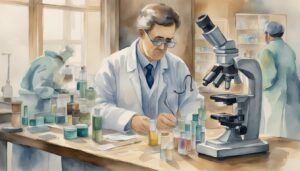How to Increase Metabolism: Unconventional Hacks Beyond Diet and Exercise

Metabolism involves complex chemical processes that convert the energy from food into the energy needed to power our bodies.
Research and findings related to human health, diseases, treatments, and the psychological aspects of health and wellness.

Metabolism involves complex chemical processes that convert the energy from food into the energy needed to power our bodies.

Life expectancy in the U.S. serves as a critical indicator of national health and well-being, with historical patterns revealing long-term improvements that have recently been challenged by a variety of factors.

Terminal lucidity refers to the unexpected return of mental clarity and memory shortly before death in patients with severe medical conditions like Alzheimer's disease and cancer.

To pinpoint the optimal time for pregnancy, a comprehensive grasp of the menstrual cycle, hormonal influences, and age-related fertility factors is essential.

Exciting connections between the body's electrical impulses and overall well-being.

Vaccine safety is crucial for public health, ensuring benefits outweigh risks through monitoring adverse events with robust systems like VAERS and V-safe.

A fever is a natural defense response initiated by the immune system, where chemicals called pyrogens trigger the hypothalamus to raise the body's temperature, aiding in combating infections.

Fungal lung infections are complex conditions caused by fungi thriving in the environment. Learn about causes, risk factors, common pathogens, and symptoms.

Flesh-eating bacteria are bacterial species that cause necrotizing fasciitis, a rare, severe soft tissue infection that consumes body’s soft tissue, most commonly caused by Group A Streptococcus.

Brain training encompasses various techniques to enhance cognitive abilities and prevent cognitive decline.